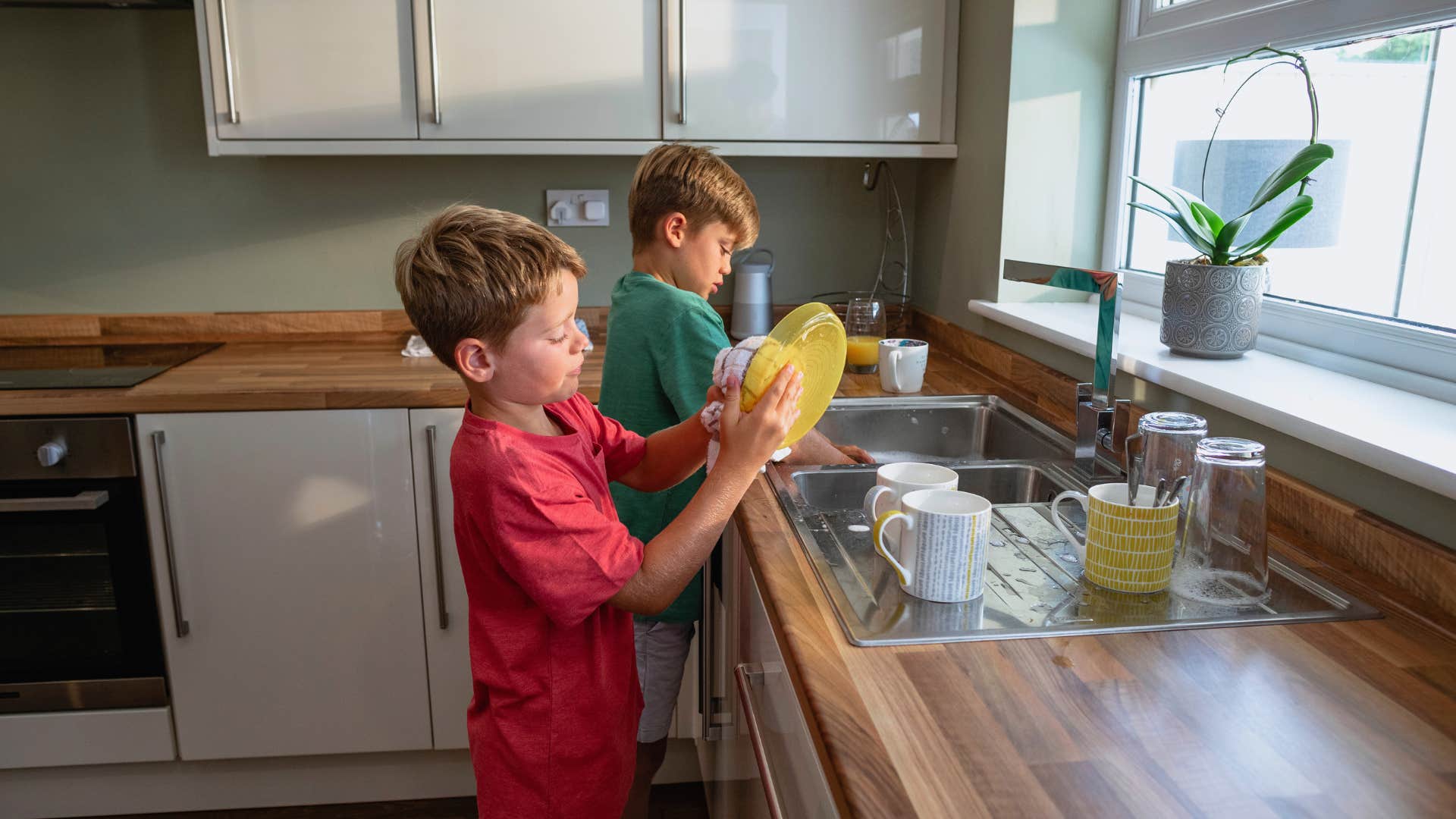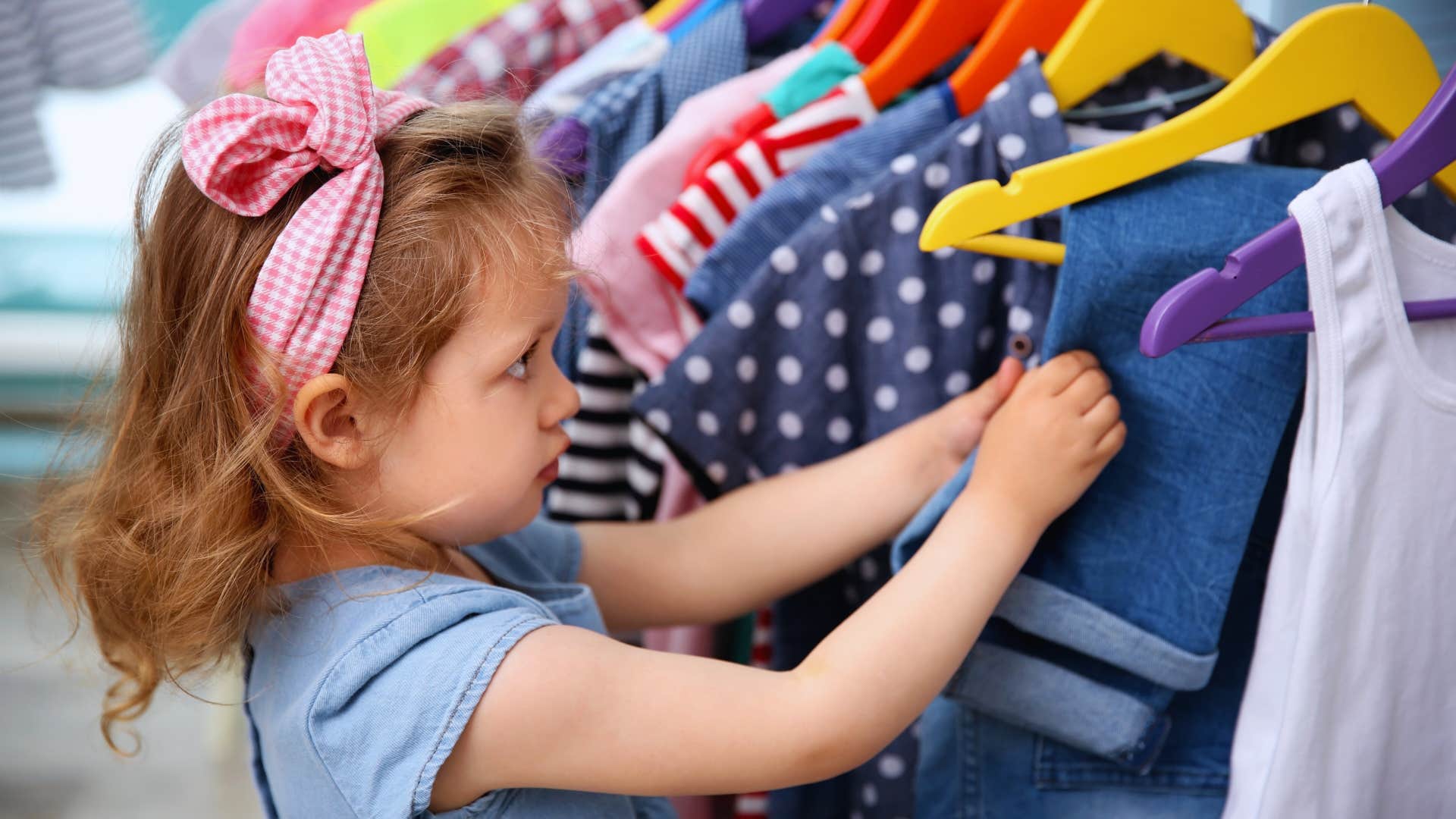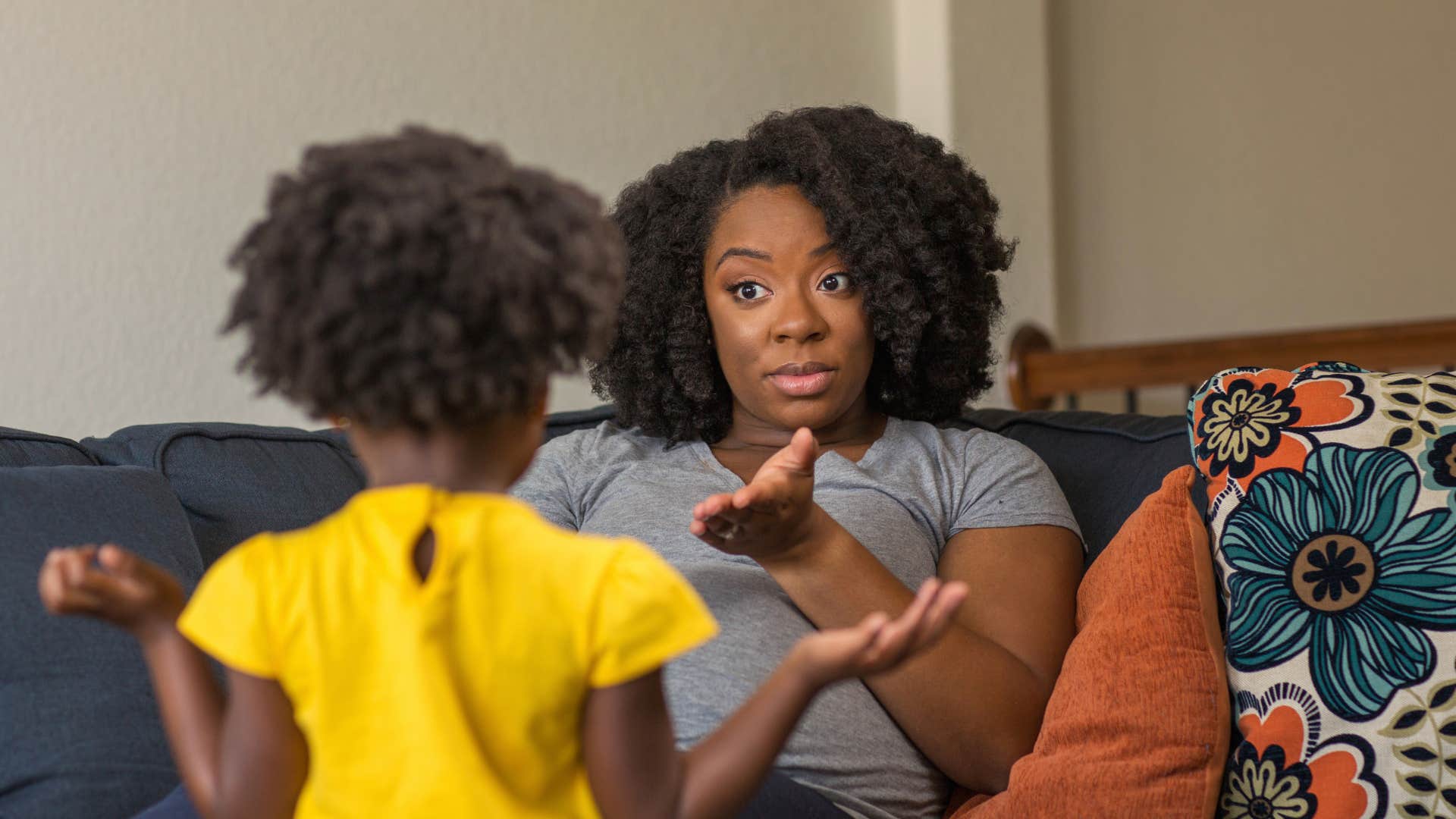11 Things Only A ‘Mean’ Parent Will Understand Deep In Their Soul
Parents who care more about their children's well-being than being liked often get a bad rap.
 Krakenimages.com | Shutterstock
Krakenimages.com | Shutterstock Parenting is a team sport, but it doesn’t always work out that way, and there are some specific things only a 'mean' parent will understand deep in their soul. Somewhere along the way, you and your spouse will disagree about how to raise your kids. It’s totally common for parents to fall into a pattern where one of them is the fun parent who bends the rules and the other one is the mean parent who sets boundaries and a strict bedtime.
It might not always feel good to be the family rule-keeper, but it’s one of the most important roles a parent can play. A mean parent understands the fact that rules are foundational to a happy, healthy childhood. As much as it stings to be the mean parent, someday, your kids will thank you for all the times you totally ruined their lives.
Here are 11 things only a ‘mean’ parent will understand deep in their soul
1. Rules exist for a reason
 Monstera Productions from Pexels via Canva
Monstera Productions from Pexels via Canva
In the heat of the moment, hearing your kid call you the mean parent can be hurtful, but you understand that it’s not actually an insult. Deep in your soul, you know that being the designated mean parent is a badge of honor. It shows that you’re doing this whole parenting thing right.
Boundaries are the best thing parents can give their kids. They make your kids feel safe and let them know how loved they are. Setting limits is a sign that you’re paying attention and providing your kids the structure they need to become successful adults.
2. Screen time is a privilege
 daniel gonzalez photographer via Canva
daniel gonzalez photographer via Canva
If you’re the mean parent, you’ll recognize the following scene: having screen-free family dinner is your number one rule, but your spouse doesn’t see why letting the kids play Roblox with their mac n’ cheese is such a big deal. You get called the mean parent for making them put their phones away, while your spouse gets to be the fun one, as usual.
Standing firm around screen time is one of the hardest things a parent can do, and it’s also one of the most beneficial. Limiting screen time supports kids’ emotional social development. It teaches kids how to delay gratification and regulate their feelings. Your kids can fight you all they want, but you understand that being the mean parent and restricting them to one episode of Bluey at a time will help them in the future.
3. Chores aren’t a choice
 DGLImages via Canva
DGLImages via Canva
Mean parents everywhere know that making kids pick up their toys is about more than having a clean home, it’s about teaching them how to thrive as adults. Kids who pitch in around the house are more confident, capable, and self-reliant.
Doing chores helps kids develop a strong work ethic, along with higher life satisfaction and higher academic abilities. A study from Harvard University revealed that kids who do chores become more successful adults, which is the main reason why mean parents make sure the family chore-chart is non-negotiable.
4. Kids are allowed to feel disappointed
 digitalskillet from Getty Images via Canva
digitalskillet from Getty Images via Canva
Kids aren’t supposed to be happy all the time, and expecting them to always be in a good mood is the parenting version of toxic positivity. Mean parents understand that letting their kids feel all their feelings is a crucial part of growing up. They know that disappointing their kids is inevitable, but it’s not the end of the world.
“The truth is that kids need to feel pain and disappointment and frustration to grow and mature,” therapist Dr. Zoe Shaw explained. “Our job as parents is not to prevent them from pain, but rather to be there and sit with them in their pain and encourage, teach, and hug them through these critical life lessons.”
Mean parents understand that kids don’t need to be shielded from their emotions, they need to feel negative things to learn healthy coping skills. If kids aren’t allowed to feel disappointed, they miss out on learning the key life skill of handling loss with grace.
5. Consistency is a love language
 Kali9 from Getty Images via Canva
Kali9 from Getty Images via Canva
Setting boundaries is a great first step for raising kids right, but that alone isn’t enough. Consequences are the most crucial part of the process. Mean parents know that their boundaries are meaningless, unless they practice consistency and follow through.
According to psychologist Sheryl Ziegler, being consistent helps kids become their best selves. “Consistency in parenting is the ability to enforce rules and provide consequences regularly,” she explained. “It is one of the most essential foundational skills to being a good parent.”
Mean parents hold their boundaries, even when their kid is melting down in the middle of the grocery store. They have the gift of foresight. It might seem easier at the moment to meet their kids’ demands for sugar cereal and avoid a tantrum but that kind of inconsistency makes things harder down the line.
6. Just because you can afford it, doesn’t mean you’ll buy it
 pixelshot via Canva
pixelshot via Canva
There’s no minimum age to teach kids how to handle money, which is something a mean parent understands on a deeper level. They know that there’s a crucial difference between meeting their kids’ needs and buying everything they want.
“Practice delayed gratification and not always giving your children what they want, even if you can afford it,” psychologist Ziegler recommended. “Some parents have trouble saying no because of boundary issues.”
From their kid's perspective, being denied all their earthly desires is cruel and unusual punishment. From their mean parent’s perspective, it’s a way to practice gratitude and foster financial literacy.
7. It’s not your job to solve your kids’ problems
 AnnaStills via Canva
AnnaStills via Canva
Parents who step in at the slightest sign of conflict do their kids a disservice, even though their instincts come from a place of love and compassion. Being a professional problem-solver isn’t part of a parents’ job description, which is something mean parents understand deep in their soul. There are some things kids have to work out for themselves. Kids need space to air their frustrations, so they can cultivate healthy conflict resolution skills.
“Give your child a chance to find their solutions,” therapist Lianne Avila advised. “It's alright to acknowledge that they're frustrated, simply by saying, ‘I see you are frustrated.’”
“This will help in the future,” she shared. “They will gain more confidence in themselves.”
“A lot of parents want to be perfect,” Avila continued. “If you feel this way, you are setting yourself up for failure… this is unrealistic and can cause problems down the road.”
8. Letting kids fail is good for them
 JackF from Getty Images via Canva
JackF from Getty Images via Canva
Mean parents understand that letting kids fail is the key to their future success. In his book, “Lighthouse Parenting: Raising your Child with Loving Guidance for a Lifelong Bond,” Dr. Ken Ginsburg revealed a parenting philosophy that helps kids learn from their mistakes, instead of fearing failure. Rescuing kids from their mistakes holds them back from becoming the fullest version of themselves. It’s never easy for parents to see their kids stumble, but saving them from failure only hurts them in the long run.
“I am committed to raising a resilient child,” Dr. Ginsburg wrote, sharing phrases to inspire lighthouse parents. “I will model that we often grow stronger when recovering from mistakes or withstanding challenges.”
“I know that overprotection communicates that I don't think that my child is capable,” he added. “Instead, I commit to preparation as long term protection. I will see mistakes as opportunities to recover and course correct.”
9. Your kids won’t always like you
 JackF from Getty Images via Canva
JackF from Getty Images via Canva
Mean parents don’t mind when their kids dislike them. They can handle tearful declarations of “I hate you,” because they’re not trying to be their kids’ bestie. Their end goal isn’t to be the cool parent, it’s to be the parent their kids trust, the one who holds space for their most difficult emotions.
According to research from Dr. John Gottman, “Emotional awareness and the ability to manage feelings will determine how successful and happy our children are throughout life.”
“When parents offer their children empathy and help them to cope with negative feelings like anger, sadness, and fear, parents build bridges of loyalty and affection,” he shared.
Having big, imperfect feelings is part of life, even for kids. When parents make their home a safe space for emotional expression, they teach their kids how to sit with discomfort and accept how they feel without judgment.
10. ‘No’ is a complete sentence
 digitalskillet from Getty Images via Canva
digitalskillet from Getty Images via Canva
Mean parents understand that saying no isn’t a negative thing. They’re highly aware that most kid-centric conflicts boil down to boundaries. They know that they don’t owe their kids an explanation every single time they say no. Sometimes, “Because I say so” is the best explanation they can give.
Mean parents don’t have any interest in power struggles. As much as they validate how their kids feel, they also understand that their kids’ emotions don’t dictate their actions. They know it’s their job to make the rules, and it’s their kids’ job to listen.
11. Parenting isn’t a popularity contest
 digitalskillet from Getty Images via Canva
digitalskillet from Getty Images via Canva
Mean parents understand that making unpopular decisions is part of showing up for their kids. If a mean parent says no sleepovers, they’re not changing their mind. Their kids are free to beg, plead, and make passionate speeches about how everyone else’s parents are letting them go, mean parents don’t care what other people think.
Mean parents are totally unbothered by the comparison. They don’t actually care what other people think, they only care about their kids’ well-being.
Alexandra Blogier, MFA, is a freelance writer who covers psychology, social issues, relationships, self-help topics, and human interest stories.

